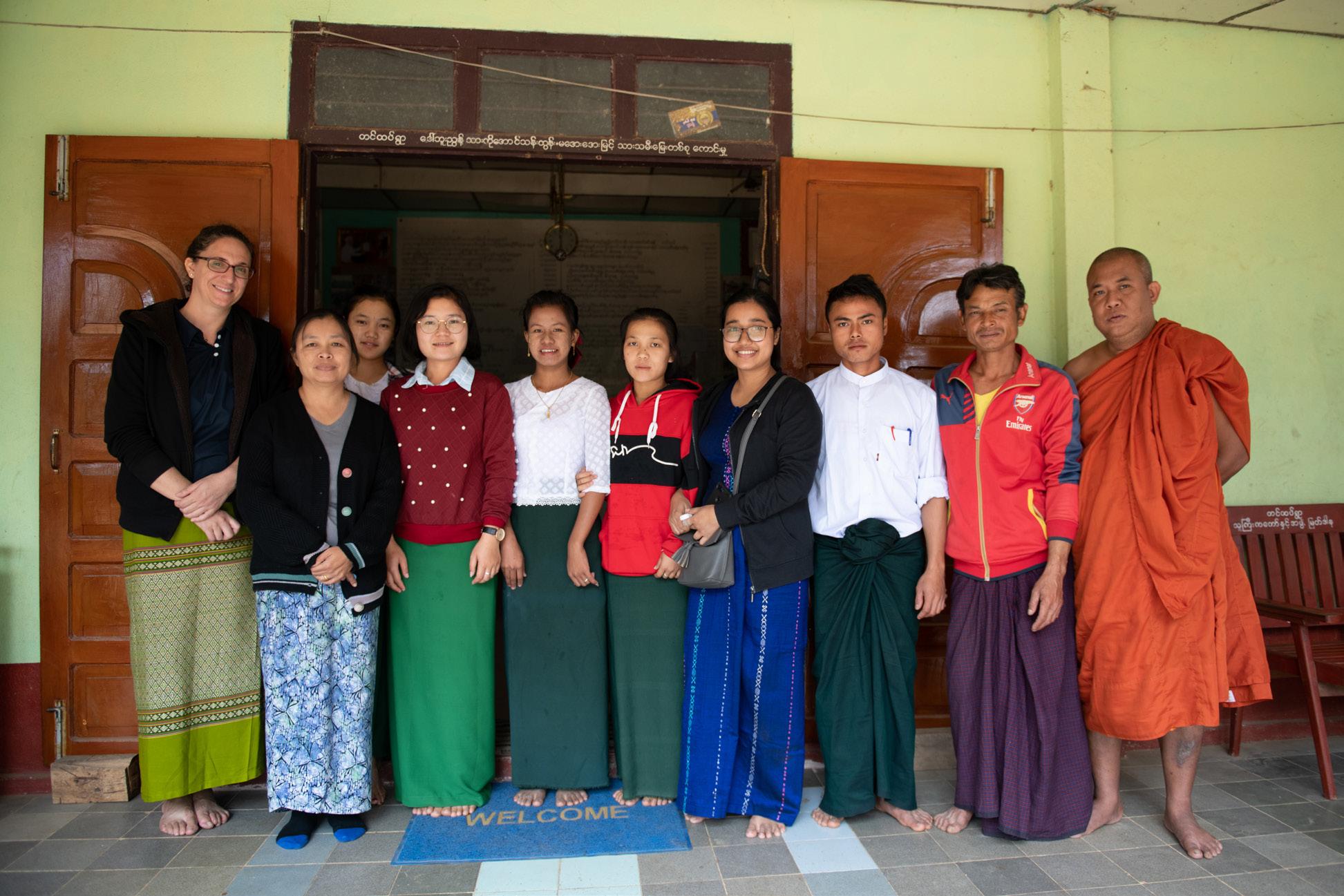
3 minute read
16. Changing Men’s and Women’s Attitudes about Leadership

Naung Seng Village, Kyaing Tung Township, December 2019
Daw Nang Seng Noon is a community leader from Kyaing Tung. She has collaborated with many CSOs and NGOs operating in the Kyaing Tung area, including Mawk Kon Local Development Organization, Braveheart Foundation, and Paung Kuu, to advocate for migrants’ rights, child rights, women’s rights, and land rights. She has also been active in several small micro-finance programs to enhance women’s livelihoods in Shan, Akha, Lahu, and Palaung communities.
Addressing women’s lack of political participation, Daw Nang Seng Noon stated that most women accept paternalistic ideology with regard to village administration. Therefore, they believe that women should not work outside the home and should not take a leading role in the village administration, especially the position of village head. They believe it is men’s job. She said, “Men never think that they have to create a space for women. Women are the same- they never think that they can think for themselves; they think that they do not need to get involved in village affairs.”
As a result, women are generally not household heads. However, Daw Nang Seng Noon mentioned that when she encounters women who believe they should rely solely on men, she asks them “What will you do for income if your husband dies?” Then, they begin to think about income generation and the skills they can use.
Daw Nang Seng Noon described a common problem for women in Eastern Shan state: they must work on the border or migrate to Thailand and China in order to provide for their families. This is because their husbands are addicted to drugs and alcohol and do not earn any income. She also explained the link between drug abuse and gender-based violence, which also drives women to leave their village and work on the border, and sometimes take their children with them to work. Daw Nang Seng Noon mentioned that in such cases, mothers want to protect their children, but it is difficult for them to work day and night. She explained that most women who work on the border send money back to their parents and grandparents. If their husbands receive the money, they just buy more drugs and alcohol; therefore, the cycle of drug abuse and violence continues.
To combat these issues, Daw Nang Seng Noon has conducted many trainings for women and men, and she is always developing new strategies. Past trainings have included anti-trafficking initiatives, child rights, labour rights, and women’s rights. She emphasized that trainings are more effective when young women can identify women role models in their community, then adopt attitudes which accept and promote women’s leadership.
In order to strategically plan trainings, Daw Nang Seng Noon noted that there are two steps: a) giving women confidence to come out in public and participate in training, and b) helping women learn new technical skills. It is a ‘step-by-step’ process, as training is a new concept for many women, and each individual has different skills.
According to Daw Nang Seng Noon, “The main problem is the men; not the women. I can persuade women easily to come to the training. Actually, we need to change men’s attitudes (vision) first. If men’s attitudes do not change, then women will come to the training only for a while, but then it is not sustainable. So men’s attitudes have to change.” She is committed to working with a team of ethnically diverse women in Kyaing Tung to create a network to enhance women’s livelihoods and create more opportunities for women’s leadership in village governance.

View from Loi Mwe Mountain, Kyaing Tung Township, December 2019

Sunset of Taunggyi, Taunggyi Township, December 2019
Shwe Paw Mya Tin














